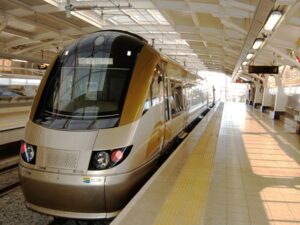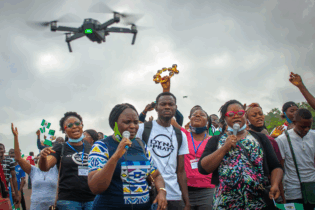Government has invested a cumulative total of R69 billion in public transport, which was spent towards infrastructure and operations in an effort to enhance accessibility to public transport and mobility.
Addressing a media briefing on the state of the transport sector, Transport Minister Sindisiwe Chikunga, said a total of R55 billion was spent in 13 cities between 2006 and 2024. This has translated into 131 stations; 253 kilometres of dedicated and bidirectional trunk routes; 302km of mixed traffic by-directional trunk routes, as well as 260km of two-way cycling, pedestrian, and non-motorised transport facilities. In addition, 2 628 bus stops were built; 11 depots were constructed; 44 million passengers were carried per annum as of 2023/24. Integrated Public Transport Networks (IPTNs) are operating at 14 – 20 operational hours daily, with approximately 1 020 vehicles. Eight cities are implementing initial phases and planning expansions to other areas that include Cape Town, Johannesburg, Tshwane, Ekurhuleni, George, Polokwane, Nelson Mandela Bay, and Rustenburg. “It must also be noted that 14 Vehicle Operating Companies have been established and contracted by municipalities to provide public transport services in IPTNs. “The most important benefit has been the formalisation of informal taxi operators and their economic empowerment in the IPTN. The majority of these Vehicle Operating Centres are run by taxi operators,” Chikunga said on Monday in Centurion. Taxi industry Government has continued to implement taxi industry reforms to improve the industry. “To date, from a target of 135 894 old taxi vehicles to be scrapped, a total of 83 713 taxis have been scrapped and about R5.9 billion has been paid out to operators through the Taxi Recapitalisation Programme (TRP),” Chikunga said. Moreover, the Department of Transport has committed to the various commercial projects for the taxi industry, which include the Taxi Broad-Based Ownership Structure, where the taxi industry owns 60% of the taxi scrapping entity, with 40% owned by a technical partner. A Memorandum of Agreement has been signed between the parties.Chikunga said the signing into law of the Economic Regulation of Transport Bill by the President will see the consolidation of the economic regulation of transport into a unified framework and policy.
“It aims to primarily promote the development of a competitive, efficient, and viable South African transport industry, contributing to economic growth and development. “It will also promote the development of an integrated system of economic regulation for the transportation of passengers and goods through airports or ports and by road or rail; as well as promote efficiency, reliability, safety and performance in the management and operation of transport facilities and services, in accordance with recognised international standards and public demand,” she said. The bill also seeks to establish appropriate institutional arrangements and procedures, which will support the consistent economic regulation of transport facilities and services. It will also enhance transparency in the management of transport facilities and services. Last year, the Department of Transport tabled at Cabinet the Draft National Public Transport Subsidy Policy. “The basic principles of the public transport subsidy are to have a subsidy that is user-targeted, equitable and sustainable in the medium to long term. We have, irrespective of our challenges and constraints, managed to realise major milestones in the area of public transport, almost as much as we have progressed with improvements in the implementation of other mandates, and these have positively affected the lives of ordinary South Africans,” the Minister said. Learner transport Chikunga said the National Learner Transport Programme remains an important avenue towards easing mobility for learners, the provision of safe transport to educational centres, improved school attendance and academic performance. “We have been able to implement that in 4 204 schools nationally. This programme is fully funded and provides a free service to learners with a budget allocation of R4.7 billion. “The 2001 National Bicycle Programme, known as Shova Kalula, adds an important facility for the mobility of learners who do not fit the criteria for scholar transport. To date, 122 307 bicycles were distributed to learners as part of the National Learner Transport Policy,” Chikunga said. Under the sixth administration, the Department of Transport distributed 32 307 bicycles nationally in all provinces, targeting underprivileged and rural learners.






